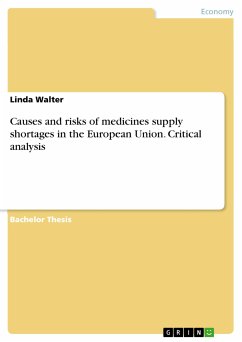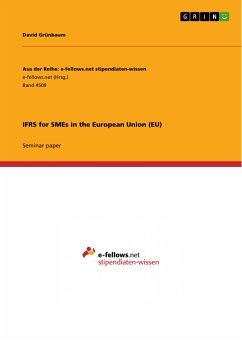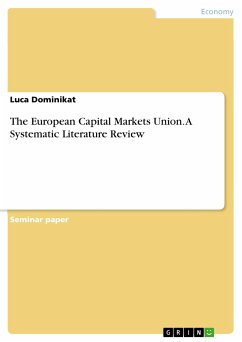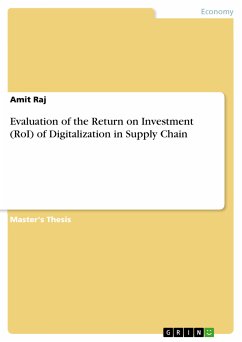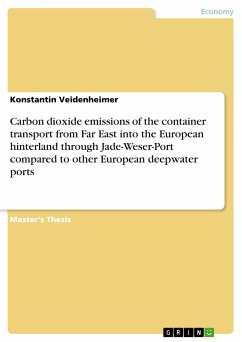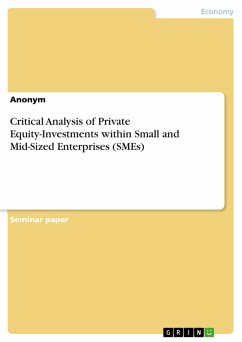Bachelor Thesis from the year 2020 in the subject Business economics - Supply, Production, Logistics, grade: 2,0, University of Applied Sciences Essen, language: English, abstract: This work deals with the issue of medicines shortages, also referred to as medicines bottlenecks, in the European Union. The roadmap for this work is to answer the three primary research questions: What are the main causes of the medicines shortages? What is the magnitude of the shortages and which risks are associated with the shortages for different groups of people along the supply chain of medicines? What are possible solutions to prevent shortages and instead ensure a stable and sufficient supply of medicines? The aim of this work is to better understand the root causes of the shortages, for example if those are organizational problems or infrastructural problems. Moreover, it should be determined whether the problem of bottlenecks can be attributed to a few or a variety of causes. In the end, this work should provide solution approaches to tackle the causes and thus the occurrence of supply bottlenecks and to be able to efficiently forecast future shortages and enhance reactivity. It should be said that this thesis is firstly limited to human medicine, thus veterinary medicine does not fall within the scope. Secondly, it deals only with the causes of supply bottlenecks in the EU. Other countries such as the USA or Canada are also affected by supply bottlenecks but are not discussed here.

